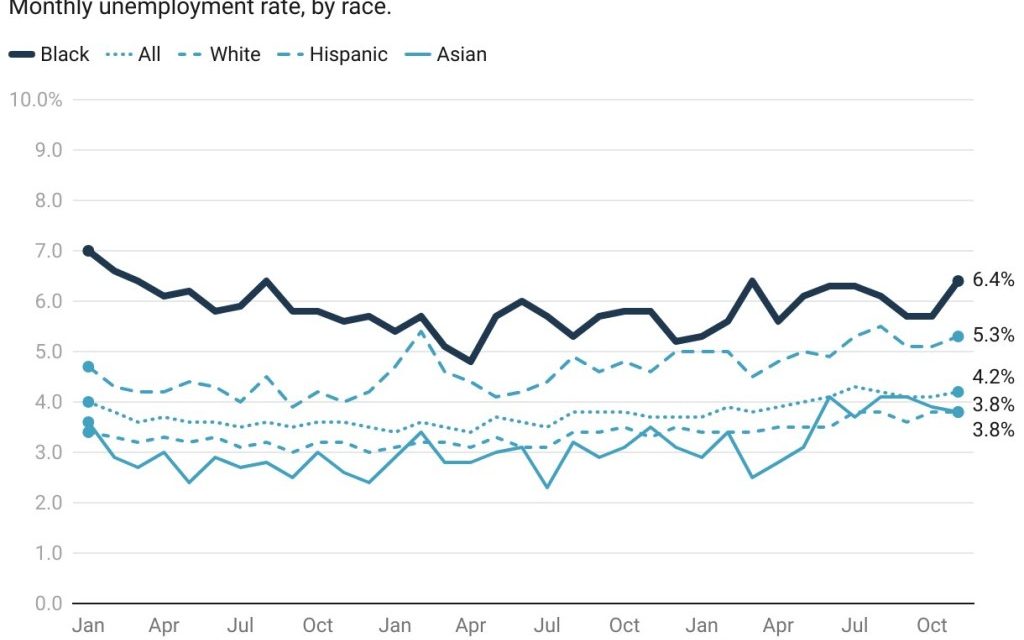By Deborah Bailey
AFRO Contributing Editor
The November 2024 jobs report gave President Joe Biden an opportunity to take a victory lap. However, the win was short-lived as the unemployment rate for Black Americans spiked sharply, triggering White House economists to reflect on the deeper work needed to ensure a lasting economic recovery for Black Americans.
“This has been a hard-fought recovery, but we are making progress for working families,” Biden said in a White House statement issued Nov. 6.
In November, 227,000 jobs were created, a substantial increase from the meager 36,000 jobs added to the U.S. economy in October, according to the U.S. Bureau of Labor Statistics.

Biden’s statement attributed the rally in jobs to Boeing machinists returning to work after a 53-day strike from Sept. 13 to Nov. 4. He also mentioned the impact of hurricane recovery efforts from 2024’s major storms leading to a brighter job picture for Americans overall.
But for Black Americans, the latest jobs report presents a more worrisome forecast, particularly for Black women. While overall unemployment remained fairly steady at 4.2 percent, the unemployment rate for Black people rose sharply to 6.4 percent, the highest rate for all major worker groups. The previous month’s unemployment rate for Black Americans was 5.7 percent, according to Bureau of Labor Statistics data. And for Black women, specifically, joblessness spiked by almost a full percentage point from 4.9 percent in October to 6 percent, the highest since February 2022.
Daniel Hornung, deputy director of the National Economic Council, said the unemployment rate for Black Americans still remains low compared with double-digit unemployment rates over the past decade, yet he admits this month’s data still raises cause for concern.
“We never want to see an uptick in the Black unemployment rate, although we saw a similar pattern last year,” Hornung said. “The Democratic Party will need to look carefully at what is being done to put policies in place to improve the conditions for the Black community for the long-term. It’s a conversation that we need to have in the coming months.”
Black workers suffered extensive job losses while the overall economy registered job gains, according to the Joint Center for Political and Economic Studies (JCPES). Black workers lost more than 276,000 jobs over the one-month period from October to November 2024, according to the JCPES.
Using data from the U.S. Bureau of Labor Statistics, JCPES listed November’s unemployment rate for Black women at 6.1 percent, while 6.7 percent of Black men looking for jobs were jobless.
Partly driving the figures are decreases in labor force participation rates–0.5 percent for Black people overall and 0.3 percent for Black women in particular.
Despite the relatively low figures, however, the data remains alarming, said Dean Baker, senior economist at the Center for Economic and Policy Research.
“The data for Black workers are highly erratic,” Baker said as quoted by Newsone. “It is not unusual to see a large jump reversed in subsequent months, but this rise in reported unemployment should be serious cause for concern.”
The post November unemployment rises for African Americans, exceeding all employment groups appeared first on AFRO American Newspapers.











